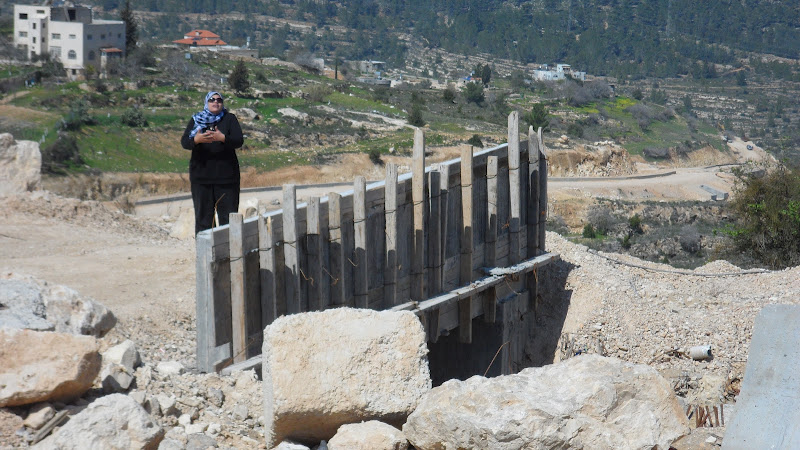Tag: Apartheid Wall
-
In Photos: Ni’lin chisels through Zionism
13 March 2012 | by Rune, International Solidarity Movement, West Bank Like every Friday, on March 9th residents of Ni’lin village, west of Ramallah, went to protest the Apartheid wall, which encloses their lands and denies them of basic human rights. A part of the protest was an attempt to break a hole in the…
-
Al Walaja: Tunneling to get home
by Ramon Garcia 8 March 2012 | International Solidarity Movement, West Bank Some Palestinians and Internationals gathered in the village of Al Walajeh on International Women’s Day to show solidarity to Omar and his family, especially his wife ,whose health has suffered from Israeli occupation in the small village. Sherinne Alaraj of the local…
-
Introducing Bil’in: The ritual of resistance and oppression
by Sophie Van Dijk 2 March 2012 | International Solidarity Movement, West Bank Today we went to Bil’in, a small village 17 km from Ramallah. For decades it has been harassed by the Israeli army. When the Apartheid Wall was constructed, it separated the farmers from their land. Seven years ago, the villagers succeeded in moving…


